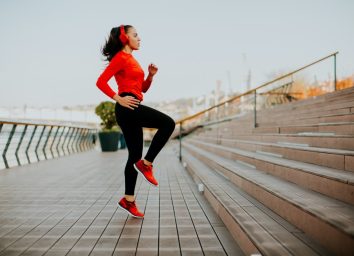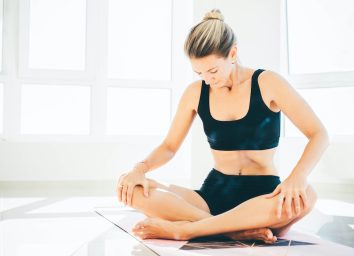Never Skip These Things After Exercising, Say Experts
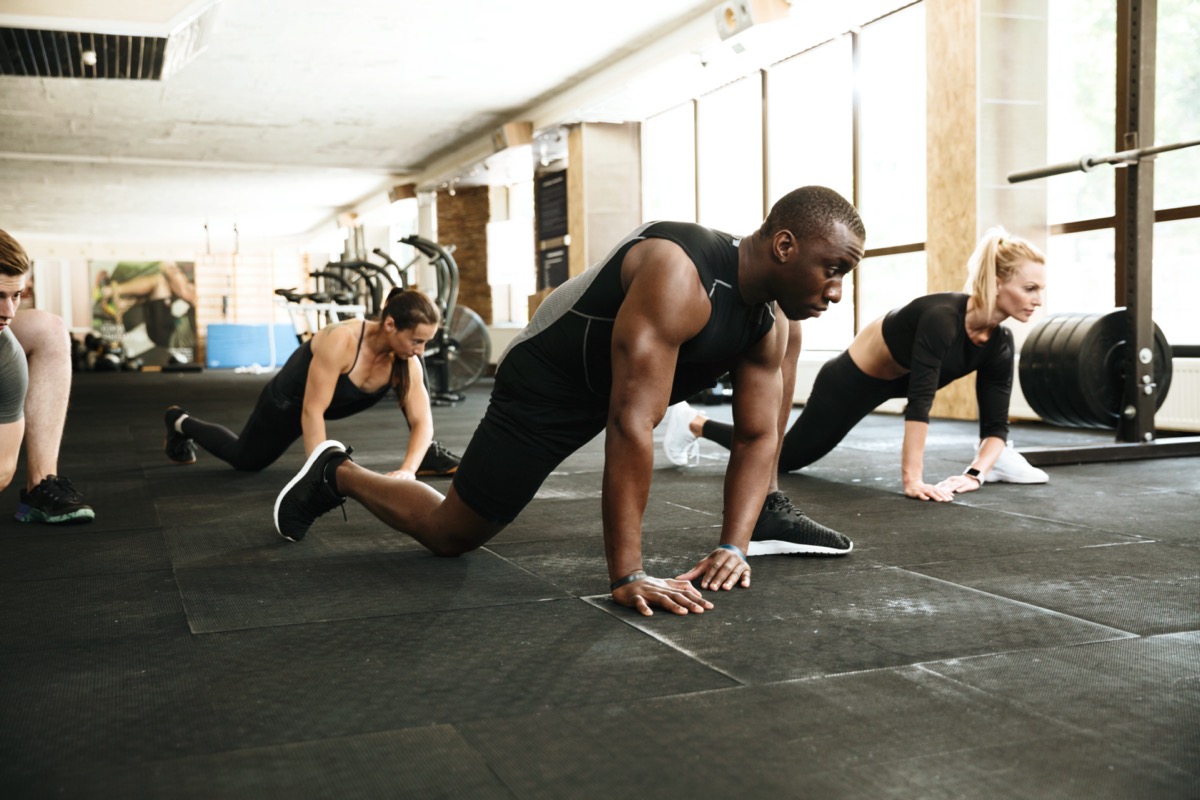
Fact: When you stop exercising, your body doesn’t simply flip a switch and return to its normal, pre-exercise state. Just as a race car that’s been zooming around a track at high speeds for a while will continue to be running hot, your engine will be warm, as well. Your heart will be pumping, oxygen will be flowing around your body, and your metabolism will be continuing to fire for a little while. (Exercise scientists call this the “after burn” effect.)
This is why it’s important that you don’t simply walk off that basketball court, weight room floor, or track the second you’re done with your workout. You need to follow some key steps that will help your body cool down and ultimately recover from your exercise—all to ensure you’re maximizing the effort you just exerted, and to ensure you’re taking better care of your body. For a full list of things you should never skip doing once you’ve had a great sweat, read on. And for more great exercise advice, don’t miss the Secret Side Effects of Exercising for Just 30 Minutes Per Day, Says Science.
You Should Go for a Short Walk
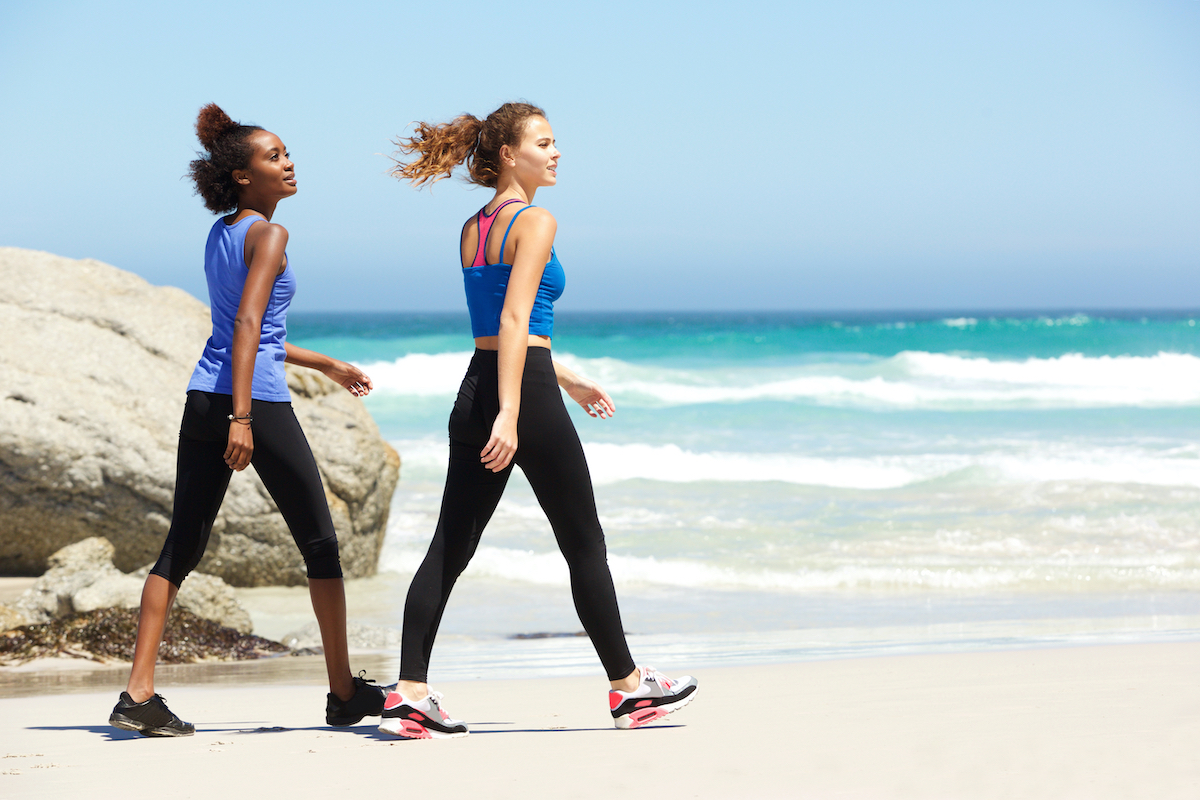
As part of your cool-down process, it’s important to ease your heart rate back down to normal after you exercise. As we’ve reported recently, failing to do so can actually result in fainting or sickness. “A sudden stop in physical activity can cause blood pooling in your legs, your blood pressure could drop and you could get very dizzy,” Jenn Burke, a personal training manager at a New York Crunch gym, explained to Men’s Journal.
If you’ve been running, one of the best ways to start your cool-down process is to keep moving and ease your body into a recovery state by taking a short, 5 to 10-minute walk. If you’ve got a fitness tracker, be mindful of your heart rate. “You want to bring your heart rate back down to a more calm state—about 100 to 120 beats per minute,” Burke advised. And if you’re a diehard walker, make sure you’re aware of The Secret Cult Walking Shoe That Walkers Everywhere Are Obsessed With.
Yes, You Should Stretch
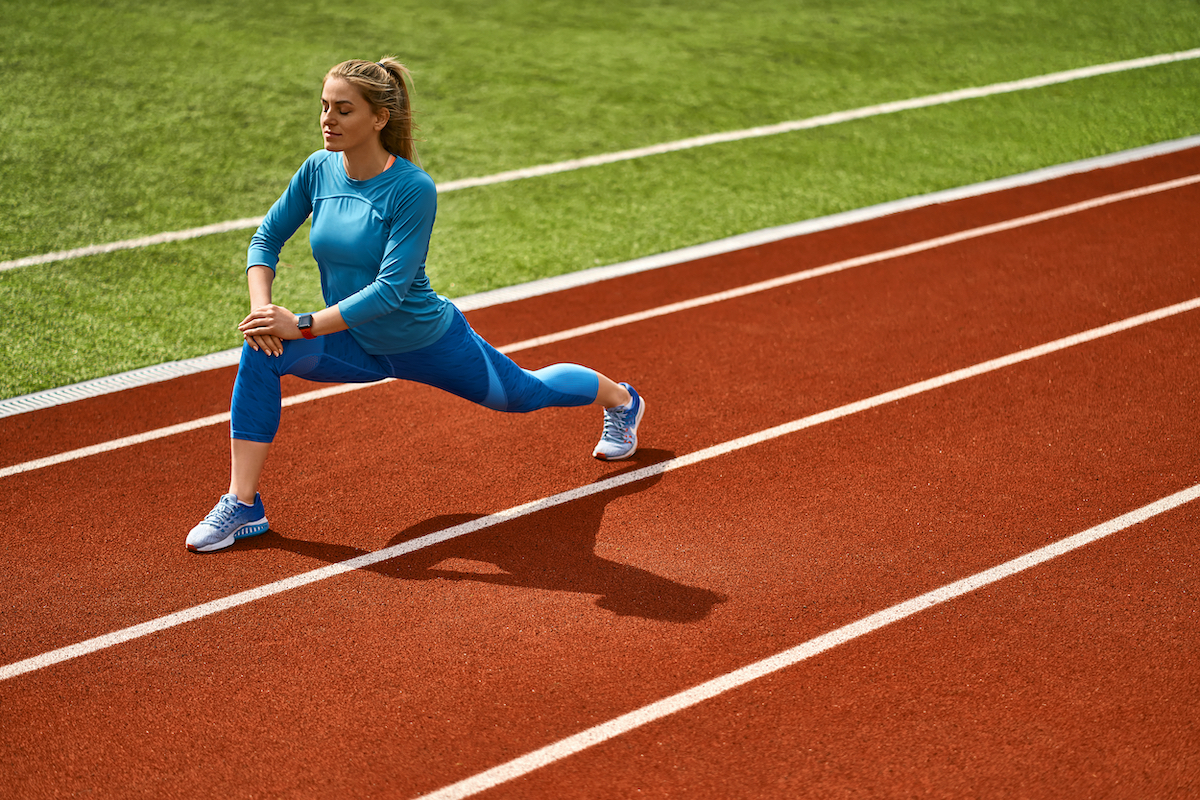
It doesn’t matter what form of exercise you’ve just completed—whether it’s a HIIT routine, a weightlifting routine, a 30-minute run, or an hour-long brisk walk—you need to stretch after exercising. Stretching will lengthen and mobilize the connective tissue that surrounds your muscles, helps your blood flow, and drastically reduces your injury risk.
What’s more, stretching will help your body dispense with lactic acid, the inflammatory response in your muscles that leads to stiffness and soreness, and will help your body maintain a healthy range of motion.
You Should Use a Foam Roller
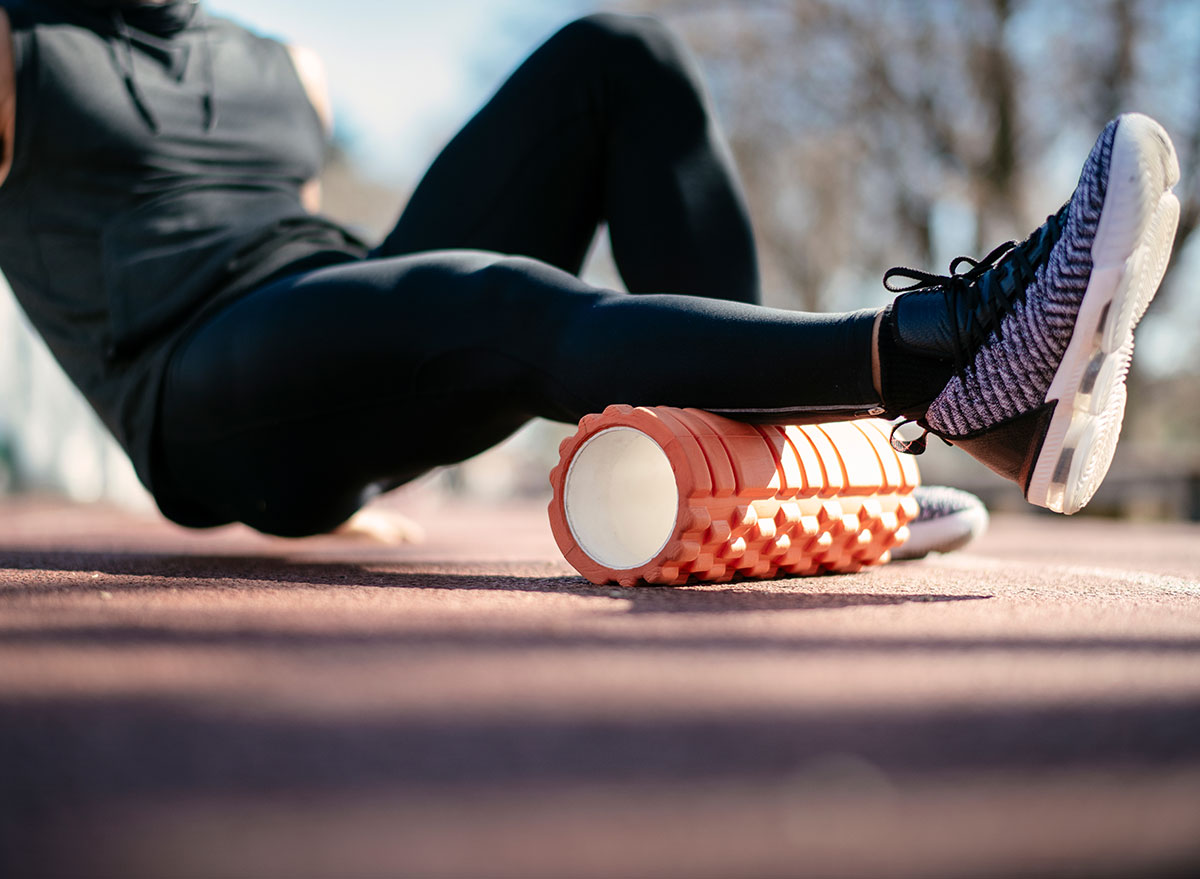
While we’d like to advise you to get a massage after every workout, we know that’s just a tiiiiiny bit unrealistic. Thankfully, you can handle some of it yourself with the right at-home tools. According to Self, using a foam roller is a great way of further staving off post-exercise soreness, and by boosting the blood flow to your tissues. “Foam rolling regularly (and properly) is a great way to speed up recovery,” they say.
According to Prevention, using a foam roller hits many of the same areas that stretching does—namely, the fascia, or connective tissue around your muscle—which grows stiff after exercise and, when tight, reduces your range of motion. “Combining foam rolling with stretching and strengthening exercises can open a whole new world of pain-free mobility for you,” they write. And for more fitness tips, see here for The Secret Tricks for Walking for Exercise, According to Walking Specialists.
You Should Shower (And, Preferably, Make it a Cool One)
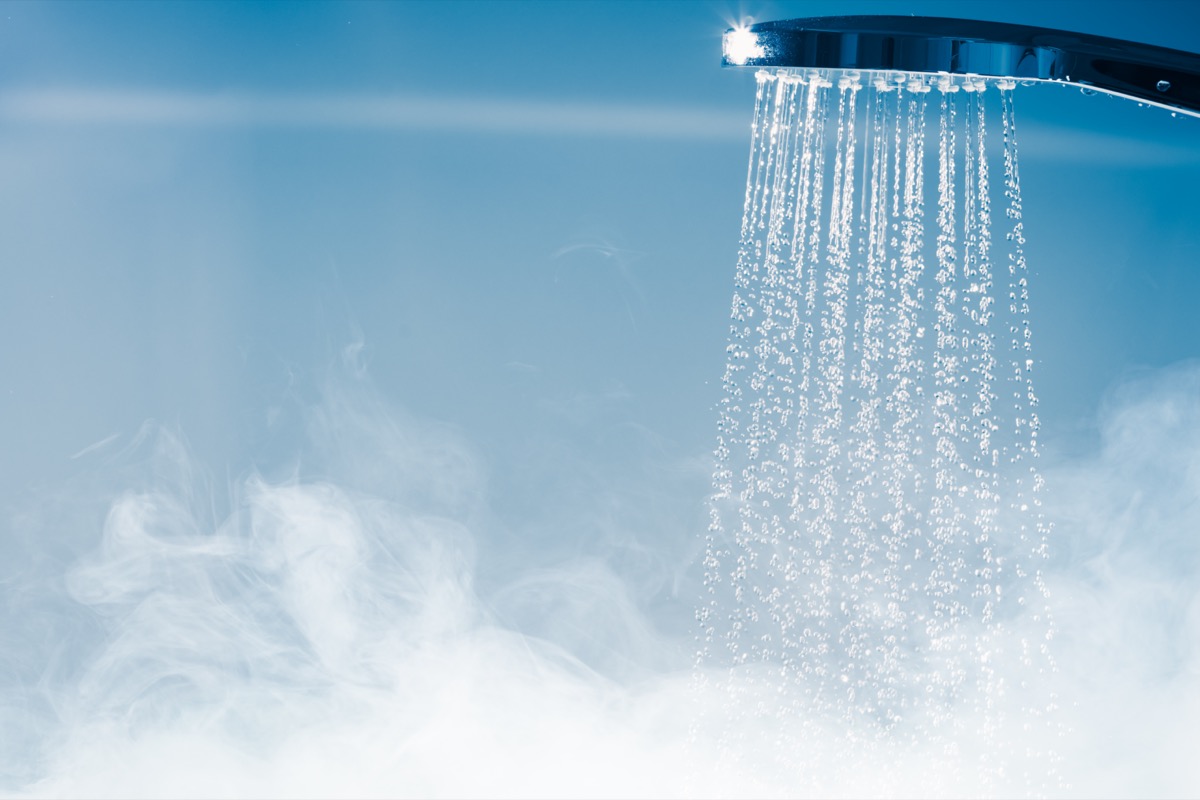
While it’s debatable whether or not we over-clean our bodies in modern society, what’s not up for debate, say dermatologists, is whether or not we should clean ourselves after exercising. Simply put: You need to shower after exercising. Due to buildup of bacteria mixed with your perspiration, you’ll be at greater risk of skin infection; you’ll be at greater risk of acne, eczema, psoriasis, and skin lesions; you’ll raise your risk of yeast infection; and your UV protection curiously plummets. Oh, and if that’s not enough to get you hitting the showers, remember that you’ll also smell bad.
If you make your shower a cold one, it could make it all the better. Not only will the cold water help cool off your skin and help you lower your core temperature, but a cold shower will also lead to a host of amazing side effects. Chiefly, you’ll procrastinate less, reduce your depression risk, improve your immune system, and you’ll help your skin retain its natural oils better than a hot shower will. For more on this, see What Happens to Your Body When You Take a Cold Shower, Says Science.
Yes, You Should Hydrate and Fuel Up
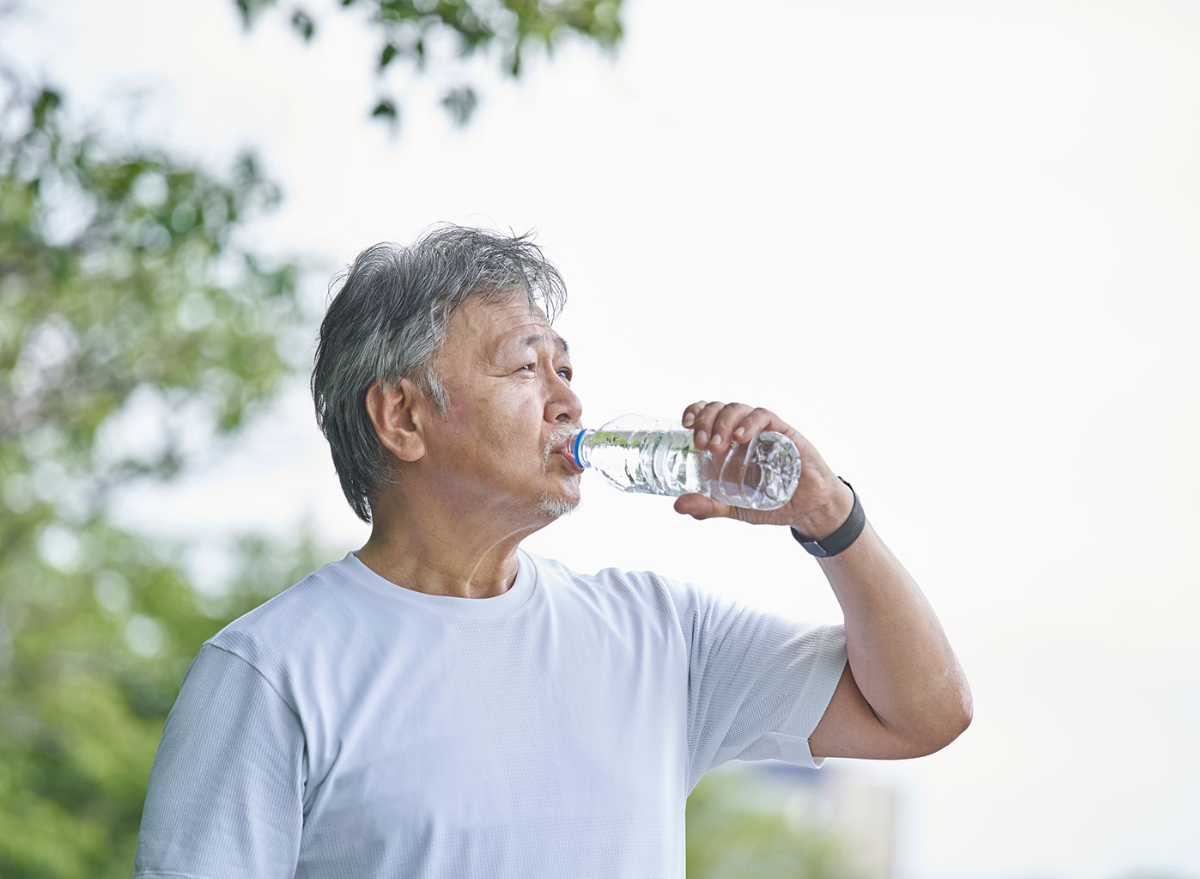
For more on what you should and shouldn’t eat, don’t miss the Popular Foods That Will Destroy Your Workouts, According to Experts.

